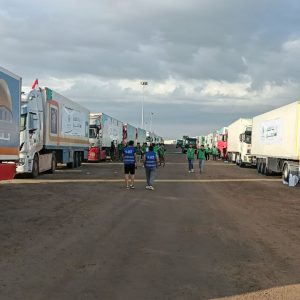UN report highlights Morocco’s economic strength
Morocco has diversified its revenue, but faces climatic and geopolitical growth challenges
RABAT, Morocco (MNTV) – Morocco stands out as one of Africa’s most stable economies, despite facing some economic vulnerabilities, according to the United Nations Economic Development Report for Africa 2024.
The report, issued by the United Nations Conference on Trade and Development (UNCTAD), evaluates the exposure of African nations to economic and climatic challenges and their responses.
Morocco is ranked among the five African nations least exposed to operational risks, benefiting from political stability, a strong regulatory framework, and robust infrastructure.
This contributes to a relatively secure business environment, shielding the nation from the worst effects of global economic downturns.
While many African nations rely heavily on hydrocarbons and minerals for export revenues, Morocco has diversified its economy by developing its agricultural, industrial, and service sectors.
Economic and climatic challenges
The national economy remains sensitive to global market fluctuations, particularly due to its reliance on phosphate exports and tourism, as reported by Moroccan daily Le Matin.ma.
To address its energy vulnerabilities, Morocco, a nation reliant on fossil fuel imports, has invested significantly in renewable energy, with the Noor solar complex standing as one of the largest in the world.
This initiative aims to reduce energy vulnerabilities and ensure long-term supply security.
Climate change poses further risks, particularly in agriculture, a vital sector of the Moroccan economy.
Droughts and desertification threaten agricultural productivity, but Morocco has taken steps to mitigate these risks, including the Green Morocco Plan and investments in irrigation. More efforts are needed to further protect the sector from climate shocks.
Fiscal policy and foreign investment
Morocco excels in trade facilitation, ranking among the top African nations in this regard. It also leads in international investment agreements, with 76 bilateral treaties, 51 of which are currently in force.
Financially, the country enjoys macroeconomic stability, thanks to strategic investments and sound monetary policies.
However, the report suggests that enhancing fiscal policies and optimizing foreign investment management will be crucial to strengthening economic resilience.
Integration into the African Continental Free Trade Area (AfCFTA) and improvements in logistics infrastructure are expected to reduce trade costs and boost exports.
Full AfCFTA implementation could create a $3.4 trillion market for Africa, offering significant opportunities for Moroccan businesses.
In the face of challenges, Morocco’s ability to adapt and innovate will be key to maintaining its position as a model of economic resilience in Africa.










